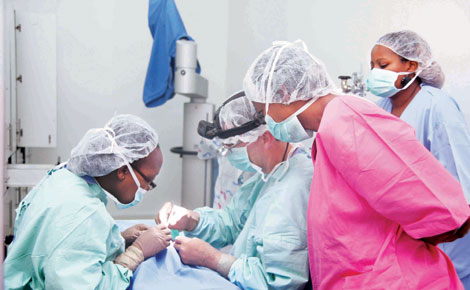×
The Standard e-Paper
Smart Minds Choose Us
 |
| Legal boon for local medical supplies sector |
Kenya: The Government has promised to enforce the law requiring suppliers to source 40 per cent of their goods from the local market, a move that could see a huge growth in the pharmaceutical sector.
This comes at a time the Health Ministry has set aside more than Sh43 billion for the procurement of medical facilities in the country. County governments are also on a shopping spree for medicines and equipment for their counties.